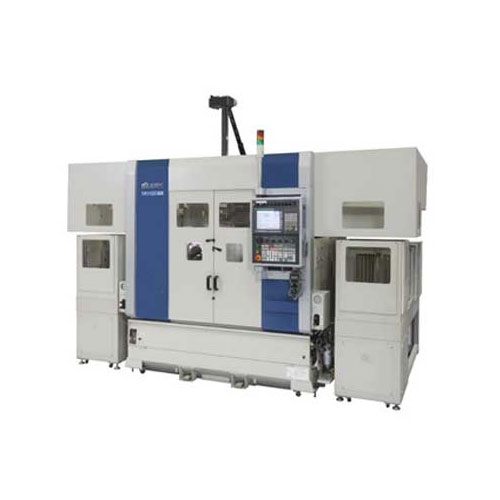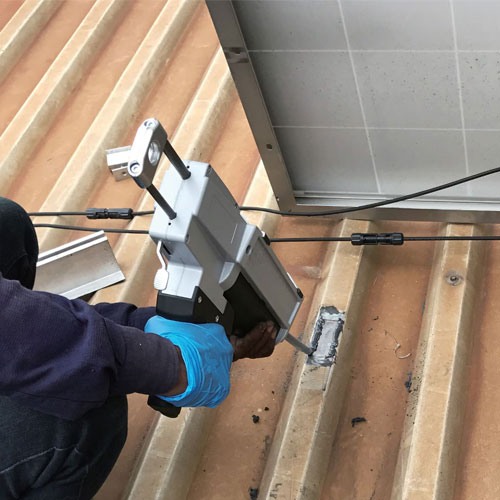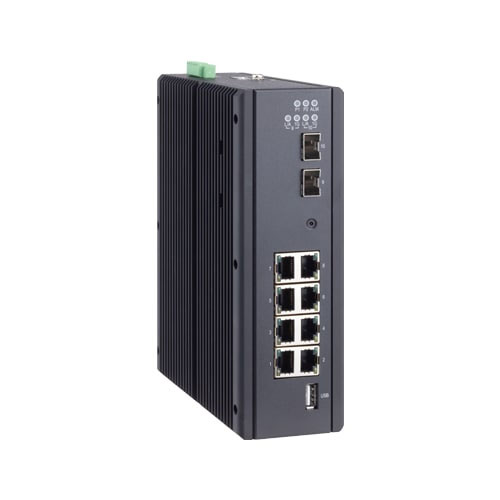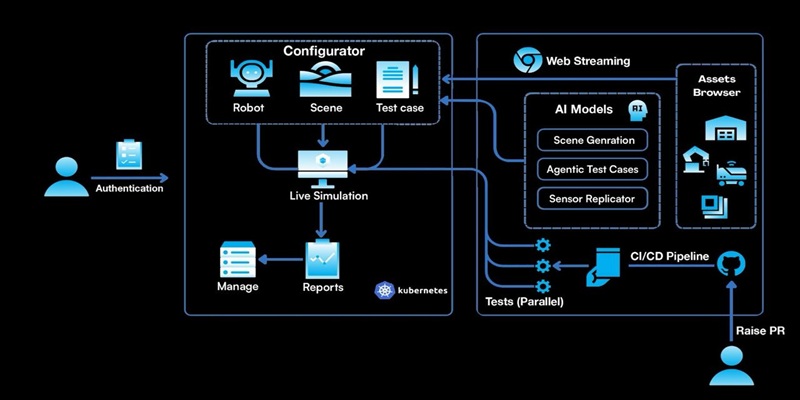Schedule a Call Back
Conjoined Twins: Batteries & UPS Systems
 Technical Articles
Technical Articles- Aug 28,15
Batteries are energy storage devices and a common source of power today in conjunction with the uninterruptible power supply (UPS) systems. Batteries and UPS systems are today essential components of the electrical eco system globally - household, commercial and industrial - besides the role of small battery cells and dry cell batteries in standalone gadgets, appliances and devices. While the latter are classified as primary batteries, these being basically standalone cells that cannot be recharged, the former, being rechargeable are termed secondary batteries. Batteries belong to one of those areas where India has world-class manufacturing base, especially for lead-acid batteries. The lead-acid battery market is well established in India. Among the top ten major players in the organised sector are companies like Exide Batteries, Amara Raja Batteries, HBL Power Systems, Luminous Power Technologies and Su-Kam Power Systems. As a matter of fact Exide Batteries and Amara Raja Batteries between them have over 70% of the market share in lead acid batteries. But there is also a huge unorganised lead-acid battery sector based on copycat technology and catering to the lower end of the market, both automotive and industries, and increasingly domestic UPS systems, exploiting the cost factor.
Exide Industries is the largest player in the Indian market across all types of lead acid batteries - automotive, industrial and special. In fact the company claims to be the only brand that offers a battery for every type of vehicle on Indian roads. The company's website also prominently mentions an example of the longevity of its batteries: In 1913, the Holland-I submarine fitted with Chloride battery sank in the sea. Salvaged after 69 years, the battery was recharged which promptly started working again! The company traces its origins in India to 1916, almost 100 years now, when the Chloride Electric Storage Co (CESCO), UK, set up trading operations in India as an import house.
But in automotive batteries, there is now a new claimant for the Numero Uno position. In mid-August 2015, Amara Raja Batteries Limited announced its results for the first quarter (Q1) ended June 30, 2015, of the 2015-16 fiscal that reported a net profit of Rs 122 crore, which is up 15 per cent over Rs 105.96 crore it logged for the corresponding quarter last year. Income has increased from Rs 1025 crore during the quarter ended June 30, 2014 to Rs 1138 crore for the quarter ended June 30, 2015, an increase of 11 per cent. In a statement released to the press, Jaydev Galla, Vice Chairman and MD of the company, said, "We have completed the auto batteries expansion at the appropriate time when the demand from OEMs and aftermarket are beginning to gain traction. Production capacities of industrial and automotive sectors are adequately available and the firm is moving towards becoming a market leader in all the sectors."
HBL Power Systems Ltd, another major manufacturer, started with developing aircraft batteries where it had early success and has since evolved into a world class manufacturer of a wide range of specialised batteries used in sectors as diverse as aviation, defense, railway, telecom, oil & gas, power utilities, solar power and UPS and inverter batteries. The company has one of the best Nickel Cadmium battery production facilities in the world.
According to The Freedonia Group, the US-based industry research firm, the world demand for primary and secondary batteries is forecasted to grow to 7.7 per cent annually to US$120 billion in 2019. Hybrid and electric vehicles will fuel the consumption; China will remain the largest market while India and South Korea will grow fastest. As for the Indian market, the analysis by TechNavio, a leading technology research and advisory company, the battery market is forecast to grow at a CAGR of 16.5 per cent over the period 2014-2019.
Basically there are three types of batteries - lead-acid, alkaline - which are mainly nickel (or iron) based - and lithium batteries. The history of the lead-acid battery is almost 150 years old and hence backed by continuous development, quite a matured technology and unrivalled in terms of cost-effectiveness. Today, lead-acid batteries command more than half of a whopping $ 60 billion world battery market, with India's share of the market being about US $ 4 billion (roughly Rs 20,000 crore), out of which the share for automotive batteries is Rs 10,000 crore while that for industrial batteries is Rs 10,000 crore. The lead-acid market is projected to grow by 5-20% in various application sectors in the coming years. Lead-acid batteries are commonly used for starting-lighting-ignition (SLI) or automotive batteries, and deep cycling and stand-by applications (commercial/industrial).
While batteries are storage devices, the UPS system is an electrical apparatus that provides emergency power to a load when the input power source, typically mains power, fails. The UPS systems market in India is driven by the growing demand from IT/ITeS and BFSI (Banking, Financial Services & Insurance) sectors coupled with prevailing power deficit scenario in the country. However, a typical UPS system is not a standby power source. It basically serves the purpose of preventing a shutdown of a critical system, computers or medical or other sensitive equipment, to enable the starting up or connection to a standby power source. But an inverter coupled to a battery serves as the purpose of a standby power source in domestic applications and small commercial establishments for a period ranging from 1 to several hours depending upon the capacity of the battery.
Aplab Limited, Delta Power Solutions India Pvt Ltd, Genus Power Infrastructures Ltd, Microtek International Pvt Ltd, Hitachi HiRel Power Electronics Pvt Ltd, Consul Neowatt Power Solutions Pvt Ltd, Riello PCI India Pvt Ltd, Uniline Energy Systems Pvt Ltd, V-Guard Industries Ltd and Su-Kam Power Systems Ltd are among the leading UPS systems and inverter manufacturers in India. But like in the case of batteries, there is a burgeoning unorganised sector in this area with several hundred small time operators thriving at the lower end, again based on cost advantages, sacrificing in the process some reliability issues.

According to recently published TechSci Research report, "India UPS Market Forecast & Opportunities, 2020", the market for UPS systems in India is projected to surpass USD1.2 billion by 2020. Demand for electricity has been witnessing exponential growth from all sectors across India over the last decade. The energy deficit stood at 4.2% in 2013-14 as compared to 8.5% during the fiscal year 2012. Though with increasing government emphasis on power generation, the overall power deficit in country has reduced over the past five years, several states continue to face power crunch. Growing demand from diverse sectors such as IT and IT enabled services (ITeS); banking, financial services and insurance (BFSI); government, manufacturing, telecom and energy sectors continues to drive the UPS market in India. Government's initiative to computerise its various departments coupled with 'The National e-Governance Plan' is expected to boost the demand for low-end UPS systems through 2020. Increasing demand for high-end UPS is expected to emanate from growing installations of high-end electronic equipment and machineries in industrial set-ups. Increasing penetration of IT/ITES sector in Tier-II and Tier II cities of the country is also anticipated to boost the demand for UPS systems in the coming years.
"Up to 50 kVA UPS have been dominating the country's UPS market, both in value as well as volume terms. However, the share of high-end (above 50 kVA) UPS systems is also expected to increase by 2020 on accounting of anticipated industrial and manufacturing growth over the next five years. Moreover, growth in IT/ITeS, BFSI and telecom is expected to continue generating demand for low- and medium-end UPS over the next five years," says Mr Karan Chechi, Research Director with TechSci Research, a research based global management consulting firm.
While the growing market for UPS systems is a demand driver for batteries, the future trends in electric mobility also portends well for battery manufacturers, albeit with different batteries for traction. Under the National Electric Mobility Mission Plan 2020 (NMEM 2020), 6-7 million electric vehicles are expected to be on the road. The government has already offered incentives for electric vehicles - 2-, 3- and 4-wheelers, in order to incentivise users.
Much needs to be done further improving the efficiency of batteries and developing new technologies for better electrochemical storage capacities and batteries for electric mobility. Together, this makes for an interesting scenario for the future of batteries given the vast potential in this sector.
Leading Indian battery manufacturers are now shifting their focus to advanced applications through a common platform

Recently 5 new companies including Exide Industries, Amara Raja Batteries Limited and advanced lead acid battery manufacturer Firefly joined India Energy Storage Alliance (IESA) along with Pluss, a thermal storage company and Prayas (Energy Group), the leader in policy advocacy in the energy sector. The India Energy Storage Alliance (IESA) was launched in 2012 by Customized Energy Solutions to promote Energy Storage and Micro grid technologies and their applications in India.
While Exide and Amara Raja need no introduction, Firefly Battery Private Ltd (FBPL) is a company based at Ahmedabad, incorporated to manufacture top quality batteries using Microcell Carbon Foam? technology from USA. FBPL has got the exclusive license from Firefly USA of Microcell Carbon Foam technology to manufacture and sell batteries in India and abroad. Firefly
Related Products

Compact Fmc - Motorum 3048tg With Fs2512
Meiban Engineering Technologies Pvt Ltd offers a wide range of Compact FMC - Motorum 3048TG with FS2512.

Structural Adhesive for Solar Panel Roof Mounting
Parson Adhesives India Private Ltd offers a wide range of structural adhesive for solar panel roof mounting – Partite 7535.

Industrial Tsn Switch
Contec launches a future-ready Industrial TSN Switch- SH-9210TSN.















